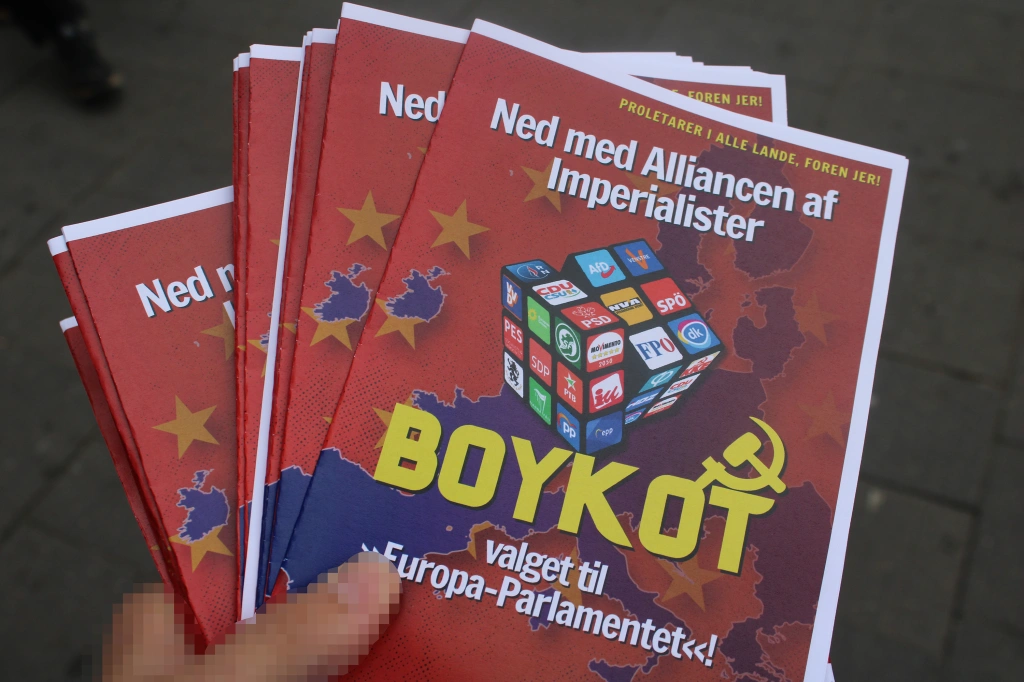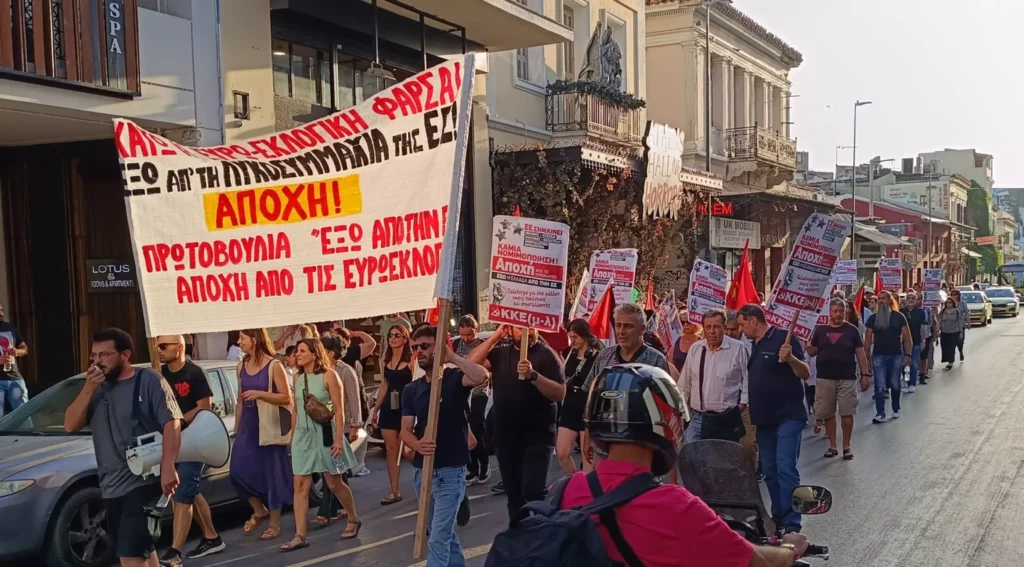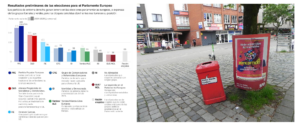
AND Brazil on the elections for the “European Parliament”
Hereby we publish an unofficial translation of an article published in A Nova Democracia.
Far-right advances without credibility in boycotted elections for the European Parliament
The far-right has grown in the European parliament, according to the first calculations of the votes in the election held between the 6th and 9th of June. Marked by a low turnout of 51% of the electorate, a fact linked to the electoral boycott campaign promoted by revolutionaries from several European countries, the elections brought together candidates from 27 countries, including Germany, Austria, Belgium, Bulgaria, Slovakia, France, Hungary, Italy, Poland, Romania and the Czech Republic.
The electoral process is carried out in each country, each one with its own rules. The citizens vote for parties in their countries, which form coalitions with groups from other countries to occupy the 720 seats in parliament.
In Germany, the far-right Alternative for Germany (AfD) party achieved the second place, behind Ursula von der Leyen’s reactionary Christian Democratic Union and the Christian Social Union. The AfD saw a 5% increase regarding its last result in 2019. Germany’s Christian Democratic Party is expected to achieve a 29.5% of the vote.
In France, the far-right coalition called Identity and Democracy lead by the National Rally (RN) party, achieved the majority of votes. The RN accumulated more than twice the votes of the Renaissance party, owned by current president Emmanuel Macron. Renaissance came in second place with 14.60%, and RN achieved a total of 31.3% of the votes. After the results, Macron dissolved the French National Assembly and scheduled new elections for 30th of June and 7th of July.
In the south of the European continent, the Prime Minister Giorgia Meloni’s party, Brothers of Italy, took the most of the votes (28.8%), winning 24 seats. The Identity and Democracy coalition also won 8 seats in the Italian elections.
Another leader who impulsed his own party was Viktor Órban, from Hungary, from the Fidesz group. Fidesz was in coalition with the Christian Democratic People’s Party and won 43.8% of the vote, or 10 seats in parliament. Despite the leadership, it is a drop of almost 10% compared to 2019.
In Belgium, the far-right Vlaams Belang party advanced, along with the reactionary New Flemish Alliance, the country’s largest party. The two associations won 3 seats each. In Austria, the Freedom Party, also far-right and a member of the international Identity and Democracy coalition, won the first place.
The election was not led by the far-right in countries such as Romania, Poland and Slovakia.
Across Europe, the elections were denounced by revolutionaries as an attempt to legitimize the reactionary order. “The European Union was born as an alliance of the imperialists, and remains so today. There is no possibility of a “social” or “democratic” Europe under imperialism. That is why they call for a high participation: they want to legitimize before public opinion the reactionary projects of imperialism.”, says a joint statement signed by organizations from Austria, Denmark, Finland, France, Germany, the Netherlands, Norway and Spain.



The document also denounces imperialist domination projects, both against oppressed nations in European regions and the rest of the world, and the process of militarization in Europe, especially since the Russian imperialist war of aggression against Ukraine. On the other hand, revolutionaries uphold the revolutionary and popular struggles taking place in the world, such as the war of national liberation of the Palestinian people, the protests that took place in France and demonstrations by European farmers. These are the facts that leads activists to conclude the need to elevate the organization and revolutionary struggle of the masses. “The blue flag of the 12 stars is lower than ever. Let us fly the red flag high.”, they conclude.
Activists launched a campaign with the slogan Down with the alliance of imperialists! Boycott the ‘European Parliament’! elections. It was implemented in the form of agitations, protests, poster collages and graffiti.
In addition to the signatories of the document, organizations in Greece, Galicia and Ireland shared the position and took part in mobilizations to boycott the elections in the European parliament.

